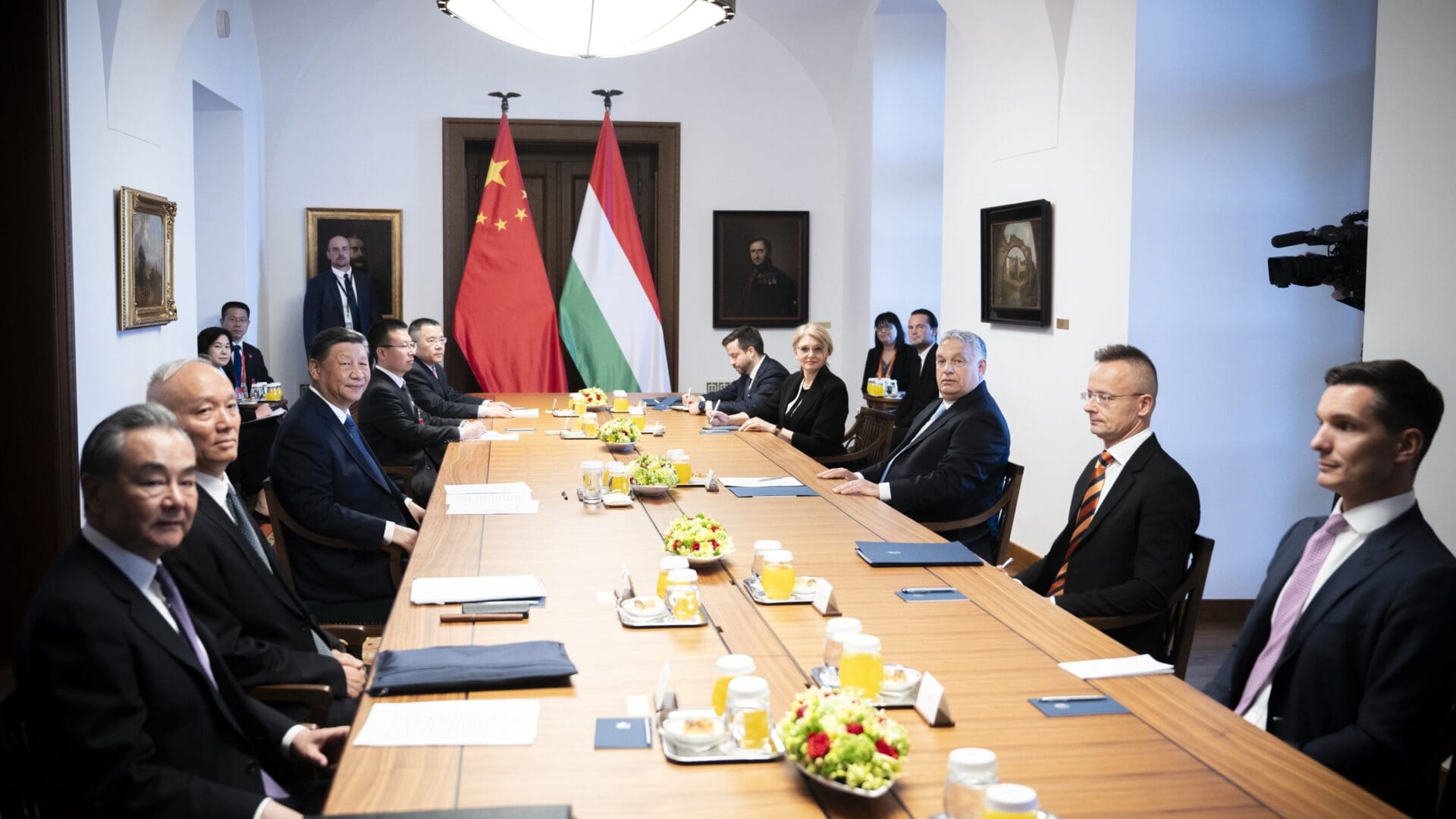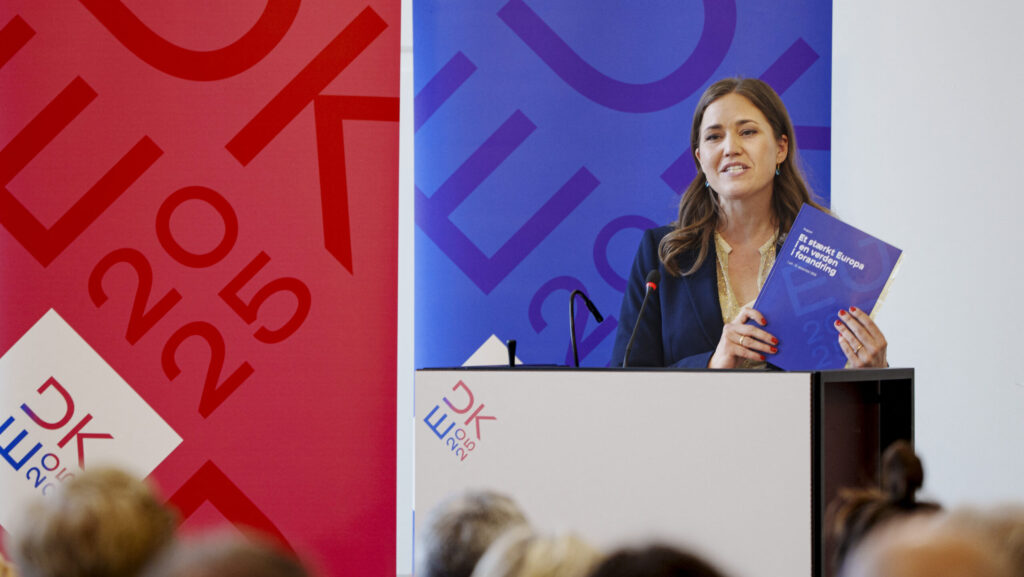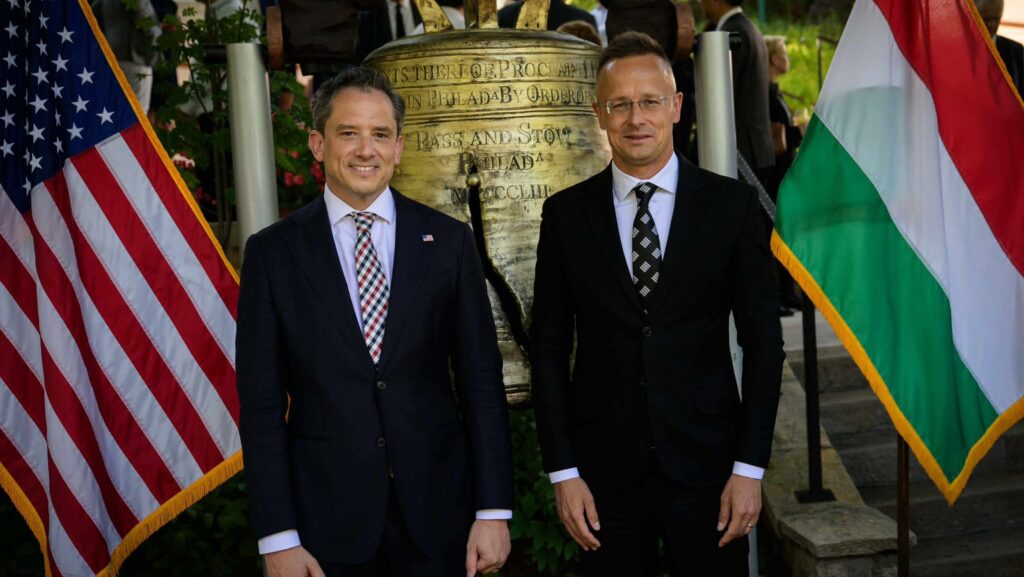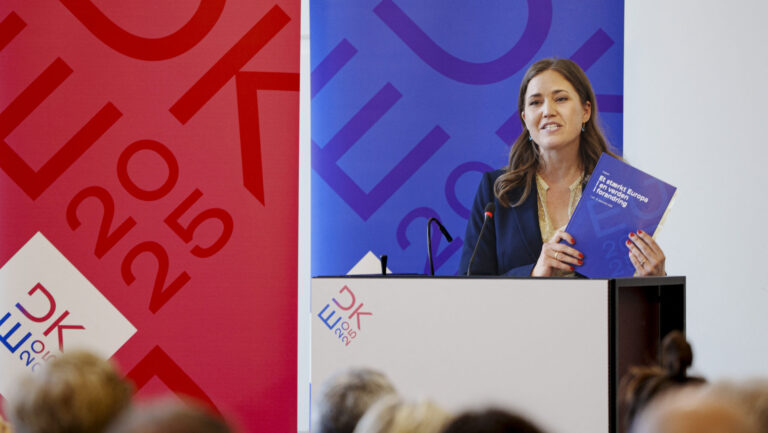Following the joint press conference of Viktor Orbán and Chinese President Xi Jinping on Thursday, Minister of Foreign Affairs and Trade Péter Szijjártó announced that the Sino-Hungarian summit has produced substantial results, with the signing of eighteen important agreements.
The minister qualified the visit of the Chinese President as historic, and announced that the talks between the leaders of the two countries were ‘extremely successful,’ leading to the signing of eighteen agreements.
Firstly, he reported that under the framework of the Belt and Road Initiative aimed at enhancing East-West connections, the two countries have compiled a project list comprising joint investments and developments. He emphasized that this project list was expanded on Thursday.
‘We used to refer to this as the V0. The preparation for the construction of the railway ring around Budapest is now commencing under a joint Sino-Hungarian development,’ he stated. He stressed the immense need for this project, as significant Chinese investments are taking place in Hungary, primarily in the eastern part of the country. The products manufactured in Hungary will largely be marketed in Western Europe, necessitating more efficient and sustainable transportation.
Similarly,
preparations for the development of a high-speed railway connection, aimed at enabling swift and comfortable travel from the Liszt Ferenc Airport to the centre of Budapest, will commence,
he announced.
The joint development of the electric vehicle charging network will also begin, as ‘the future belongs to electric cars,’ the minister nailed down. ‘We have agreed to develop the electric vehicle charging network in Hungary, in order to enable rapid charging of electric cars across the country,’ he said.
He also informed about the commencement of the construction of the most modern, largest, safest, and fastest border crossing between Hungary and Serbia, providing unprecedented throughput. ‘The Röszke motorway border crossing is extremely overloaded. Unfortunately, we are all familiar with the images of long lines of trucks or cars. We would like this to change in the future, so that neither individuals nor those involved in freight traffic have to wait for long hours or days,’ he pointed out.
Moreover, he mentioned Hungary will jointly explore with Serbian and Chinese partners
the possibility of building an oil pipeline between Hungary and Serbia as quickly as possible, contributing to the security of energy supply for both countries and the entire region.
The minister emphasized the significant role of agricultural exports in bilateral trade, particularly noting that in Central Europe, Hungary holds the most Chinese export licences. The range of products concerned will expand further as a result of today’s agreements, including cherries on the list.
Finally, he announced that cooperation will be expanded to a new area that could bring a new dimension to bilateral relations, namely nuclear energy. ‘We have now agreed with the Chinese government to prepare a cooperation programme for the entire vertical of the nuclear industry, so that both countries can properly apply the cheapest, safest, and most efficient method of electricity generation,’ he highlighted. In this context, he noted that the demand for electricity will steeply rise worldwide in the coming years, and this demand can be met most effectively with nuclear energy. ‘Countries with significant nuclear capacities will be in a good position and safe,’ he emphasized.
Related articles:








